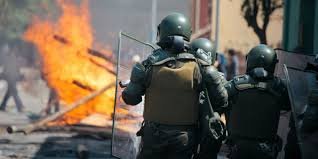
Civil war is one of the most devastating crises a nation can experience. Unlike external wars, civil wars tear at the very fabric of a country—turning neighbors into enemies, dividing communities, and often leaving long-lasting scars that persist for generations.
Understanding the full impact of civil war is essential not only for policymakers and academics, but also for ordinary citizens, who often bear the brunt of the consequences. In this article, we explore the different ways civil war affects a country and offer practical insights on how citizens can mitigate its impact.
1. Economic Collapse and Long-Term Poverty
Civil wars disrupt national economies. Infrastructure is destroyed, businesses shut down, and investment dries up. Agricultural production and trade grind to a halt. Inflation spikes, and the local currency often devalues rapidly. Governments may divert funds from social services to military expenditure.
Long-term effects include:
- Decades of underdevelopment
- Loss of human capital as professionals flee
- Persistent unemployment and inequality
Example: Syria’s civil war caused its GDP to shrink by over 60%, with more than 80% of the population now living in poverty.
2. Humanitarian Crisis and Population Displacement
Civilians often become direct targets or collateral damage in civil wars. Essential services—healthcare, education, water, and sanitation—become inaccessible. Diseases spread quickly, and famine becomes a real threat.
Consequences include:
- Mass displacement (both internal and external refugees)
- Breakdown of family and community structures
- Surge in child soldiers and exploitation
Example: Over 7 million people were internally displaced by the Democratic Republic of Congo’s ongoing conflict, while millions more sought refuge in neighboring countries.
3. Breakdown of Institutions and Rule of Law
Governments may collapse or lose control over vast territories during civil war. In such a vacuum, warlords, militias, or extremist groups often take over.
This leads to:
- Weak or nonexistent rule of law
- Corruption and lawlessness
- Fragmentation of national identity
Without functioning institutions, justice systems falter, elections become meaningless, and society can become permanently polarized.
4. Cultural and Educational Loss
War destroys more than infrastructure; it erodes a nation’s culture and intellectual foundations. Schools close, universities are targeted, and libraries, museums, and historical landmarks are often lost forever.
Resulting impacts:
- A lost generation with little or no access to education
- Brain drain, as educated citizens flee
- Destruction of cultural heritage and identity
5. Environmental Degradation
War contributes to severe environmental damage. Forests may be razed for tactical reasons, water sources polluted, and cities reduced to rubble.
This can cause:
- Scarcity of clean water
- Soil degradation and desertification
- Long-term impact on agriculture and biodiversity
6. Psychological and Social Trauma
The emotional toll of civil war is profound. Trauma from violence, displacement, and loss can span generations.
Typical social effects include:
- PTSD and mental health crises
- Distrust between ethnic, religious, or regional groups
- Generational cycles of resentment and revenge
Mitigating the Impact: What Can Citizens Do?
While many of the forces driving civil war are beyond the control of ordinary citizens, there are steps communities can take to mitigate the damage:
✔ Promote Local Unity
Build bridges between different groups through community events, interfaith dialogue, and local problem-solving initiatives.
✔ Preserve Education
Support underground schools or online education initiatives when formal systems collapse.
✔ Document and Preserve Culture
Cultural resilience can be a powerful force. Record traditions, stories, and historical memory, even in exile.
✔ Use Technology and Media Wisely
In a civil war, misinformation can inflame tensions. Use and share verified news sources, and support platforms that promote peace and accountability.
✔ Engage in Nonviolent Resistance
Civilian-led peace movements have been instrumental in de-escalating conflicts around the world. Nonviolent protest, civic education, and advocacy can help shift narratives away from violence.
✔ Prepare Practically
Citizens can create emergency plans, secure essential supplies, and participate in community-based risk management to stay resilient in times of crisis.
Final Thoughts
Civil wars devastate economies, communities, and cultures—but their effects are not inevitable. History shows that the resilience of ordinary people often determines how quickly a nation can heal. While governments and international bodies must play their part, citizens too can be powerful agents of stability, compassion, and eventual reconstruction.
Understanding the true cost of civil war—and preparing for it—is not alarmism. It’s wisdom. It’s survival. And, ultimately, it’s a step toward peace.
Sign up to our newsletter for weekly updates.